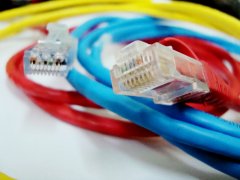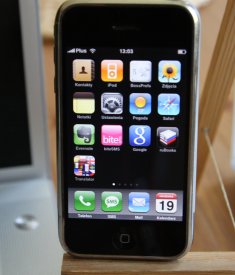 “The internet doesn’t work”
“The internet doesn’t work”
A statement heard in my home the other day as my wife tried to access an app on her mobile phone. I am sure the very same statement may have been uttered in households across the UK and beyond. In itself it seems like a simple enough statement. The issue is that it is a gross over simplification.
So let’s work through some possible issues. First of all the issue could have been with the specific app which my wife was trying to use. The issue may instead relate to the operating system of the phone, which in this case was Android, or to the physical hardware of the phone. Maybe Wi-Fi was turned off on the phone or it was in aeroplane mode. If the issue isn’t in the software or hardware of the phone it could relate to a weak wireless signal due to interference or just poor reception relating from distance or from obstructions between the device and the wireless access point or router. The issue may relate to the Wi-Fi password and/or the security settings for the wireless network. This brings us to the wireless access point or router which may represent an issue in terms of its functionality or its configuration. At this point there are already a large number of things which might account for the issue being so vaguely reported however this is only a small number of the overall possible causes.
Other issues could be an issue in relation to DHCP within the router, assuming we are looking at your average home network. It may be that the router is blocking traffic possibly. Another option is the actual connection between the router and the ISP. This may be incorrectly setup or there could be a physical issue in the line. Maybe I haven’t paid the bill and the ISP has cut my home off. Issues with the Domain Name Server (DNS) are another possible issue as are issues with the actual server with which the app is trying to communicate.
And the above only represents some of the possible causes, with other options and combinations of options being possible, and yet for all the possible causes the issue is simply presented as “the internet doesn’t work”.
Technology has become a necessity rather than a luxury. We need it for banking, accessing council services, accessing government services and communication among many other areas. As such we expect it to work, and that is simple; it either works or it doesn’t. So when it doesn’t we make simple statements, which I believe highlights our generally simplistic understanding of technology, and yet we bring more and more technological devices into our home. Do we truly understand how this tech works? Do we understanding the implications of using it? Do we know how to use it in a safe and secure manner?
I would suggest the answer to the above questions is No and yet we worry about the lack of understanding of our students. How can they hope to understand and be safe with technology when we adults, the ones who they are taught by, parented by and their role models generally don’t. Lets stop using these concerns for limiting and blocking technology use, and instead lets explore technology use with our students and children, making mistakes, and learning as we go.


 At the front line in the classroom the concerns around technology use have focused on issues such as phone addiction, privacy settings, screen time and fake news to name but a few of the issues reported in the press in recent months. I decided during my presentation at King Edward VI earlier this week to try and get some input on what the concern areas are for those behind the scenes, from the IT support or IT Services leaders of a number of schools.
At the front line in the classroom the concerns around technology use have focused on issues such as phone addiction, privacy settings, screen time and fake news to name but a few of the issues reported in the press in recent months. I decided during my presentation at King Edward VI earlier this week to try and get some input on what the concern areas are for those behind the scenes, from the IT support or IT Services leaders of a number of schools. Big brother is truly watching us. This week already I have read two articles in relation to devices we are now bringing into our homes to make life easier, however where there are other considerations which may be overlooked.
Big brother is truly watching us. This week already I have read two articles in relation to devices we are now bringing into our homes to make life easier, however where there are other considerations which may be overlooked. Technology has become an important part of the life we now lead. Social media, games consoles, smart phones and voice recognition systems like Amazon’s Echo are now all part of normal life. This technological change has brought many benefits however there are already some indications of the implications of technology use.
Technology has become an important part of the life we now lead. Social media, games consoles, smart phones and voice recognition systems like Amazon’s Echo are now all part of normal life. This technological change has brought many benefits however there are already some indications of the implications of technology use. I recently read a post in the Telegraph entitled “
I recently read a post in the Telegraph entitled “ At my school we have recently been working towards the implementation and roll out of Office 365 across the school and in doing so it has raised some interesting questions in relation to the various platforms and solutions which are available for use in the classroom.
At my school we have recently been working towards the implementation and roll out of Office 365 across the school and in doing so it has raised some interesting questions in relation to the various platforms and solutions which are available for use in the classroom. I have been thinking a little bit further with regards societies addiction to our mobile devices and in particular mobile phones, a subject I only recently posted on (read my earlier post
I have been thinking a little bit further with regards societies addiction to our mobile devices and in particular mobile phones, a subject I only recently posted on (read my earlier post  I found this mornings discussion on BBC with regards the use of body cameras by teachers in 2 pilot schools an unexpected turn of events in the use of technology in schools. This story was also reported in
I found this mornings discussion on BBC with regards the use of body cameras by teachers in 2 pilot schools an unexpected turn of events in the use of technology in schools. This story was also reported in